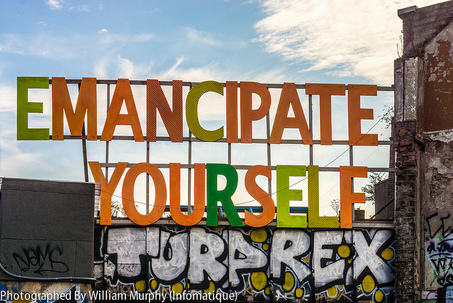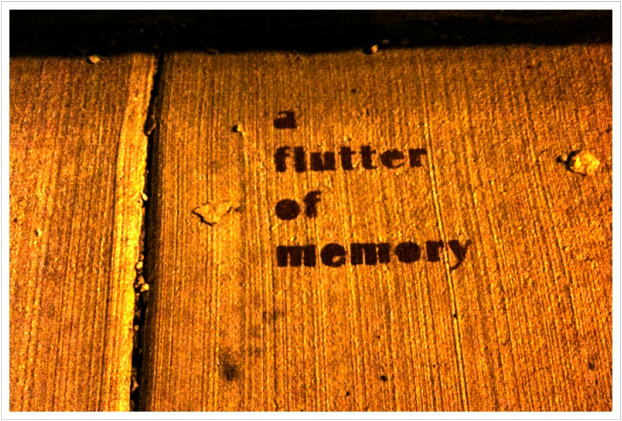|
What you expect tends to be realized more often than you might think.
Resourceful people have different beliefs from those who are not resourceful. Resourceful people expect to be able to find a way to achieve their outcome. They expect to be able to easily and naturally form a rapport with anyone they meet. When they want something to happen, they often go for it; and if they make a mistake, they learn from the feedback. These expectations tend to influence a resourceful person's outcome. Believing the following ideas will increase your interpersonal skills and personal effectiveness. When you meet people and you want to create rapport, remember these beliefs: People automatically like you because you are a good person. You can easily and naturally meet anyone you choose. You can have instant rapport with anyone you choose using these techniques. You have a lot in common with any person you meet. You can learn something from each and every person you speak with. You may be thinking that these beliefs are not necessarily true, and if so, you would be correct. However, we're out to get a result, not to logically prove what is and isn't true. Unstoppable Confidence: How to Use the Power of NLP to Be More Dynamic and Successfule by Kent Sayre James Altucher's Daily Practice helps keep your life balanced when you need it to succeed11/29/2013
When I look back at these times now I realize there was a common thread.
EACH TIME THERE WERE FOUR THINGS, AND ONLY FOUR THINGS, THAT WERE ALWAYS IN PLACE IN ORDER FOR ME TO BOUNCE BACK. Now I try to incorporate these four things into a Daily Practice The key is: every day try to make some improvement in the following areas: PHYSICAL, EMOTIONAL, MENTAL, SPIRITUAL. PHYSICAL – being in shape. Doing some form of exercise. In 2003 I woke up at 5am every day and from 5-6am I played “Round the World” on a basketball court overlooking the Hudson River. Every day (except when it rained). Trains would pass and people at 5:30am would wave to me out the window. Now, I try to do yoga every day. But it’s hard. All you need to do, minimally, is exercise enough to break a sweat for 10 minutes. So about 20-30 minutes worth of exercise a day. This is not to get “ripped” or “shredded.” But just to be healthy. You can’t be happy if you aren’t healthy. Also, spending this time helps your mind better deal with it’s daily anxieties. If you can breathe easy when your body is in pain then it’s easier to breathe during difficult situations. Here are other things that are a part of this but a little bit harder: • Wake up by 4-5am every day. • Go to sleep by 8:30-9. (Good to sleep 8 hours a night!) • No eating after 5:30pm. Can’t be happy if indigested at night. But the most important side effect of being healthy is that sickness will not get in the way of your freedom. It won’t get in the way of mental vitality, emotional health, and ultimately spiritual health. And will allow you to enjoy high quality of life in your later years. So find even the 10 minute routine that resonates with you. Don’t depend on the late night infomercials with their false dreams and promises. The cemetery of dead exercise machines in basements is an enormous graveyard. EMOTIONAL – If someone is a drag on me, I cut them out. If someone lifts me up, I bring them closer. Nobody is sacred here. When the plane is going down, put the oxygen mask on your face first. Family, friends, people I love – I always try to be there for them and help. But I don’t get close to anyone bringing me down. This rule can’t be broken. Energy leaks out of you if someone is draining you. And I never owe anyone an explanation. Explaining is draining. MENTAL – Every day I write down ideas. I write down so many ideas that it hurts my head to come up with one more. Then I try to write down five more. The other day I tried to write 100 alternatives kids can do other than go to college. I wrote down eight, which I wrote about here. I couldn’t come up with anymore. Then the next day I came up with another 40. It definitely stretched my head. No ideas today? Memorize all the legal 2 letter words for Scrabble. Translate the Tao Te Ching into Spanish. Need ideas for lists of ideas? Come up with 30 separate chapters for an “autobiography.” Try to think of 10 businesses you can start from home (and be realistic how you can execute them)? Give me 10 ideas of directions this blog can go in. Think of 20 ways Obama can improve the country. List every productive thing you did yesterday (this improves memory also and gives you ideas for today). SPIRITUAL – I feel that most people don’t like the word “spiritual.” They think it means “god.” Or “religion.” But it doesn’t. I don’t know what it means actually. But I feel like I have a spiritual practice when I do one of the following:
The Results • Within about one month, I’d notice coincidences start to happen. I’d start to feel lucky. People would smile at me more. • Within three months the ideas would really start flowing, to the point where I felt overwhelming urges to execute the ideas. • Within six months, good ideas would start flowing, I’d begin executing them, and everyone around me would help me put everything together. WITHIN A YEAR MY LIFE WAS ALWAYS COMPLETELY DIFFERENT. 100% I Was Blind But Now I See: Time to Be Happy by James Altucher Most of us know exactly what we need and want to do in our lives and, in most cases, not knowing isn't the challenge at hand.
The real challenge is usually not having enough trust and belief in ourselves to actually go out and get started. Most people become programmed to ignore their inner knowing because they associate it with risk and potential failure. Your soul is always talking to you and guiding you, the question is whether you trust its higher wisdom or not. Even when it comes to self-improvement we will feel more inclined to seek out the most popular methods simply because that is what everyone else is doing. This is fine, and completely natural to begin with, but in order to fully grow into the potential that is unique to you, there comes a time where you need to surrender to your intuition and follow it wherever it takes you. This can be very scary because most people have been programmed to do the exact opposite and follow the herd their entire lives. They have been taught that the most stable and secure way in life is to simply do what everyone else is doing. You really need to let yourself free from the herd mentality and start disconnecting from what everyone else is doing and do what you want to do instead. In a world where the majority of people are asleep, it is simply irresponsible to look to others for instructions on how to live your life. Sure, you should listen to as many people as you can, but in the end it is up to you and you alone to make the decisions that are best for you. Just look around you with awareness and you will understand why. If you are not failing, it doesn't mean you are just THAT good, it simply means you have grown stagnant and you are not pushing yourself anymore. Never failing simply means you are playing it a little too safe. Why is it important to listen to your inner knowing? The Mind-Made Prison: Radical Self Help and Personal Transformation by Mateo Tabatabai According to Tony Schwartz, author of The Power of Full Engagement (2004) and Be Excellent at Anything (2011), the optimal learning cycle appears to be approximately ninety minutes of focused concentration. Any more, and your mind and body will naturally need a break. Use that opportunity to exercise, rest, have a meal or snack, take a nap, or do something else.
The First 20 Hours: How to Learn Anything . . . Fast! by Josh Kaufman Your thoughts are at the root of all that you are. You have anywhere from 50,000 to 60,000 thoughts that run through your mind on a daily basis. And, for many people, most of those thoughts are negative thoughts. They are fear-based thoughts that include nervousness, anxiety, resentment, guilt, and many other thoughts that don’t serve them. These negative thoughts elicit negative emotions in the body.
When you have beliefs buried deep down inside of you, which remain covered and secret, your ego can use those to control you. It can do what it wants to help shroud your true inner feelings from coming to light. It knows that as soon as those feelings come to light, it won’t be able to hide anymore, but until they do, you’ll continue experiencing huge amounts of internal conflict and strife. You must take control of your thoughts, so that you can take control of your emotions. If you can’t control your thoughts, then you’ll find yourself slipping back into old and destructive patterns that don’t serve you. If you overspend your money on shopping, travel, or general entertainment, it’s your thoughts that are feeding the emotions that drive that spending. It all starts in the mind, and if you’re going to have a millionaire mentality, you have to eradicate the negative thoughts from your mind. The key to doing this is creating new affirmations. Affirmations are statements that you repeat over and over again, until you mind accepts them as truths. Since everything in this world is merely a construct of our minds, building an affirmative set of thoughts that’s repeated over, and over again, can literally change the course of your life. This doesn’t mean you get to ignore your problems; it means that you have to replace your negative patterns of thinking, with positive ones. Negative thoughts won’t get you anywhere, which is why you always hear the saying the rich get richer, and the poor get poorer. It’s because like begets like. Rich experiences build onto rich thoughts, and poor experiences build onto poor thoughts. Both types of individuals have a certain set of beliefs, experiences, and thoughts that create the foundation of their viewpoints. If you want to override those thoughts that are filtered by your beliefs, change your thoughts and your beliefs, then build up new experiences to support your new beliefs. The Millionaire Method: How to get out of Debt and Earn Financial Freedom by Understanding the Psychology of the Millionaire Mind by R.L. Adams This is exactly what we are constantly doing in our lives, we are in a constant mode of comparing with others and it drains a lot of our energy.
We compete with others in order to prove that we are better and we often forget what we really want in the heat of trying to ''win''. I see people working 80-hour work weeks because they are stuck in beating their competitors. In reality, they would rather come second or third and spend more time with their family. I am not saying there is anything wrong with working hard. I am saying it is important to be aware of why you are doing something so you don't spend your whole life chasing the pot of gold at the end of the rainbow. Are you doing it to become a better you or are you doing it to become better than someone else? If you are in it for the actual journey, and you are enjoying yourself along the way, great. Just don't expect to reach a final destination where you are going to finally be content because you are now better than others. There is always going to be someone who is more attractive, wealthier, more intelligent, etc. It is a game you can't win and, by playing in a way where you can be better than someone, you are also playing in a way where you can be worse. Everything is constantly shifting and if your worth is based on external conditions, your sense of worth is constantly going to go up and down. Isn't this how most people live their lives? The Mind-Made Prison: Radical Self Help and Personal Transformationn by Mateo Tabatabai Most people's life quality can be drastically improved by just finding 5-10 of their limiting beliefs and changing them. Each single one of your beliefs has the power to create either depression or joy in your life.
This means that whenever I refer to a belief as negative or positive in this book, I am only talking about whether or not it is improving the quality of your life. Now that you understand that all beliefs are also meta-beliefs, and vice versa, I will just use the word belief from now on, in order to make things as simple as possible. The Model I work with a model of behavior that is very simple to understand: Belief --» Reaction + Justification This simple model is determining how you are constantly reacting. The first step towards free will is to understand the underlying principles. Belief: An understanding about a given area of life or a situation. Reaction: How you ''choose'' to react in different circumstances and to different experiences in life. Your reactions are completely determined by the kind of beliefs you have running in the background. Justification: This is the story you build around a given reaction and your justification explains why you did what you did. In 9/10 cases your justifications are NOT the real reason why you reacted as you did, your beliefs are. Let's look at some practical examples of how this model works in relation to your limiting beliefs, so that we don't get too caught up in the theory. You think you are in control, but in reality your beliefs are controlling everything. This isn't problematic in and of itself, because no matter what you do, your beliefs are always going to be in control If we couldn't rely on our beliefs as a means of operating in daily life, we would never evolve or grow, because we would constantly have to learn the same thing over and over again. But how are we going to become the master of our experience, if our beliefs are always going to be in control? We are going to do so by choosing the beliefs we want to operate with. The Mind-Made Prison: Radical Self Help and Personal Transformation by Mateo Tabatabai You must shift your mentality from one that’s expecting instant gratification, to one that’s patiently awaiting deferred gratification. Eventually it will come.
When you look at a person who chain smokes cigarettes, overspends, overeats, or indulges in drugs or alcohol, you may ask yourself why they do it. You may ask yourself why they make those decisions when clearly they are going to lead to more pain than pleasure. Since we do more to avoid pain than we do to gain pleasure, the decision-making process can seem skewed. An alcoholic may not understand why they overdrink, or why the person in financial ruins continues to overspend. It’s because their decision-making processes are only limited to short-term causes and effects. They are doing more to avoid pain than gain pleasure in the short term, not in the long term. If they were doing more to avoid pain in the long term, then they wouldn’t engage in excessive behavior. In order to master your financial life and start on the road to wealth building, you must first master your psychic apparatus. The difficulty is however, that most of this self-talk which occurs in your mind, is purely subconscious. The id is a purely subconscious construct, and both the ego and superego live in both the conscious and subconscious realms of your mind. So in order to be able to recognize the self-talk that’s going on, and to take control of it, you must learn to build awareness. You build awareness by paying attention to your emotions, because your emotions are the gateway to your thoughts. Learning to recognize and understand those emotions is the key. Even if you’re facing a scary situation, you must realize that many people in the past have faced the same or similar situation, and have overcome it. Many people in the future will also face that same or similar situation. Fear-based thoughts won’t serve you, and in fact, it will just foster more physiological problems. The stress, fear, and anxiety wreak havoc on your body. Try to look at your situation from a bird’s-eye view. Think back to other times in your life when you were in a bad situation, but you were able to pull yourself out of it. The strong emotions that take hold of your body are only the result of the ego blinding you to the truth. When you can look at the truth, and see it for what it is, then take steps towards fixing it, you’ll feel remarkably better. However, if you continue to feel the emotions, yet don’t do anything about it, then it will only get worse. The Millionaire Method: How to get out of Debt and Earn Financial Freedom by Understanding the Psychology of the Millionaire Mind by R.L. Adams When it comes to creative endeavors, so often we find people going at them from the wrong end. This generally afflicts those who are young and inexperienced—they begin with an ambitious goal, a business, or an invention or a problem they want to solve. This seems to promise money and attention. They then search for ways to reach that goal. Such a search could go in thousands of directions, each of which could pan out in its own way, but in which they could also easily end up exhausting themselves and never find the key to reaching their overarching goal. There are too many variables that go into success. The more experienced, wiser types, .... are opportunists.
Instead of beginning with some broad goal, they go in search of the fact of great yield—a bit of empirical evidence that is strange and does not fit the paradigm, and yet is intriguing. This bit of evidence sticks out and grabs their attention, like the elongated rock. They are not sure of their goal and they do not yet have in mind an application for the fact they have uncovered, but they are open to where it will lead them. Once they dig deeply, they discover something that challenges prevailing conventions and offers endless opportunities for knowledge and application. Mastery by Robert Greene There’s a wonderful story about a Nobel Prize winner…
He was asked by some corporation to talk about time planning. He gets up in front of the group with a glass jar, and he says, “All I can tell you about time planning, I can show you in two minutes.” Then he takes out a bunch of big stones and puts them into the jar, filling it up to the top, then he takes out a pocketful of tiny stones and puts them in, then he pours some sand in, and then finally he pours some water into the jar—and that’s how it all fits. The moral was pretty clear, we have to put the big stones in first; otherwise, the other stuff won’t fit. So the big stones are our big creative projects in this case? Exactly, the stuff you really want to do. If you don’t put those things into your calendar and stand by that time, it’s never going to get done. All the small stuff will trickle in and there won’t be room. Manage Your Day-to-Day: Build Your Routine, Find Your Focus, and Sharpen Your Creative Mind (The 99U Book Series)) by Jocelyn K. Glei |
Click to set custom HTML
Categories
All
Disclosure of Material Connection:
Some of the links in the post above are “affiliate links.” This means if you click on the link and purchase the item, I will receive an affiliate commission. Regardless, I only recommend products or services I use personally and believe will add value to my readers. I am disclosing this in accordance with the Federal Trade Commission’s 16 CFR, Part 255: “Guides Concerning the Use of Endorsements and Testimonials in Advertising.” |
Photos from Wesley Oostvogels, Thomas Leuthard, swanksalot, Robert Scoble, Lord Jim, Pink Sherbet Photography, jonrawlinson, MonsterVinVin, M. Pratter, greybeard39, Stepan Mazurov, deanmeyersnet, Patrick Hoesly, Lord Jim, Dcysiv Moment, fdecomite, h.koppdelaney, Abode of Chaos, pasa47, gagilas, BAMCorp, cmjcool, Abode of Chaos, faith goble, nerdcoregirl, Adrian Fallace Design & Photography, jmussuto, Easternblot, Jeanne Menjoulet & Cie, aguscr, h.koppdelaney, Saad Faruque, ups2006, Unai_Guerra, erokism, MsSaraKelly, Jem Yoshioka, tony.cairns, david drexler, Reckless Dream Photography, Raffaele1950, kevin dooley, weegeebored, Cast a Line, Zach Dischner, Eddi van W., kmardahl, faungg's photo, Alan Light, acme, Evan Courtney, specialoperations, Mustafa Khayat, darkday., Orin Zebest, Robert S. Donovan, disparkys, kennethkonica, aubergene, Nina Matthews Photography, infomatique, Patrick Hoesly, j0sh (www.pixael.com), SmithGreg, brewbooks, tjsander, The photographer known as Obi, Simone Ramella, striatic, jmussuto, m.a.r.c., jfinnirwin, Nina J. G., pellesten, dreamsjung, misselejane, Design&Joy, eeskaatt, Bravo_Zulu_, No To the Bike Parking Tax, Kecko, quinn.anya, pedrosimoes7, tanakawho, visualpanic, Brooke Hoyer, Barnaby, Fountain_Head, tripandtravelblog, geishaboy500, gordontarpley, Rising Damp, Marc Aubin2009, belboo, torbakhopper, JarleR, aakanayev, santiago nicolau, Official U.S. Navy Imagery, chinnian, GS+, andreasivarsson, paulswansen, victoriapeckham, Thomas8047, timsamoff, ConvenienceStoreGourmet, Jrwooley6, DeeAshley, ethermoon, torbakhopper, Mark Ramsay, dustin larimer, shannonkringen, Stf.O, Todd Huffman, B Rosen, Lord Jim, Jolene4ever, Ben K Adams, Clearly Ambiguous, Daniele Zedda, Ryan Vaarsi, MsSaraKelly, icebrkr, jauhari, ajeofj3, jenny downing, Joi, GollyGforce, Andrew from Sydney, Lord Jim, 'Retard' (says University of Missouri), drukelly, Sullivan Ng, jdxyw, infomatique, AlicePopkorn, RAA408, Abode of Chaos, SaMaNTHa NiGhTsKy, as always..., D@LY3D, Angelo González, the sugary smell of springtime!, Marko Milošević, pedrosimoes7, MartialArtsNomad.com, 401(K) 2013, Sigfrid Lundberg, MoneyBlogNewz, NBphotostream, the stag and doe, Jemima G, bablu121, .reid., jared, EastsideRJ, Alex Alvisi, Marie A.-C., geishaboy500, modomatic, starsnostars., Hardleers, Sarah G..., donielle, Danny PiG, bigcityal, || UggBoy♥UggGirl || PHOTO || WORLD || TRAVEL ||, -KOOPS-, seafaringwoman, kingkongirl, Richard Masoner / Cyclelicious, Hans Gotun, gruntzooki, Duru..., Vectorportal, Peter Hellberg, Alexandre Hamada Possi, Santi Siri, Joshua Rappeneker, a little tune, Patricia Mangual, erokism, woodleywonderworks, Philippe Put, Purple Sherbet Photography, Abode of Chaos, greybeard39, swanksalot, greyloch, Omarukai, Marc_Smith, SLPTWRK, Peter Alfred Hess, illum, MarioMancuso, willc2, _titi, Lightsurgery, Rennett Stowe, feverblue, Esteman., Keith Allison, DCist, h.koppdelaney, Mike Deal aka ZoneDancer, Jos Dielis, The Wandering Angel, Nathaniel KS, MsSaraKelly, Frank Lindecke, Kara Allyson, JeremyGeorge, deoman56, gagilas, Xoan Baltar, Luke Lawreszuk, Eric-P, fdecomite, lorenkerns, masochismtango, Adrian Fallace Design & Photography, anarchosyn, -= Bruce Berrien =-, radiant guy, Free Grunge Textures - www.freestock.ca, El Bibliomata, antmoose, Pedro Belleza, Fitsum Belay/iLLIMETER, Nathan O'Nions, denise carbonell, swanksalot, ▓▒░ TORLEY ░▒▓, Marco Gomes, Justin Ornellas, jenni from the block, René Pütsch, eddieq, thombo2, Ben Mortimer Photography, :moolah, ideowl, joaquinuy, wiredforlego, Rafa G. _, derrickcollins, Fishyone1, ben pollard, Admiralspalast Berlin, Georgio, garybirnie.co.uk, fiskfisk, MoreFunkThanYou, xJason.Rogersx, kevin dooley, David Holmes2, Kris Krug, JD Hancock, Images_of_Money, andriux-uk events, Tyfferz, decafinata, jonrawlinson, isado, Lohan Gunaweera, Derek Mindler, Mike "Dakinewavamon" Kline, themostinept, kiwanja, erokism, dktrpepr, Keoni Cabral, denise carbonell, Neal., tonystl, ericmay, Ally Mauro, erokism, Georgie Pauwels, anitakhart, Ivan Zuber, r2hox, Aka Hige, badjonni, striatic, Arry_B, 401(K) 2012, pvera, Lord Jim, Dredrk aka Mr Sky, TerryJohnston, eschipul, wiredforlego, Yuliya Libkina, fabbio, Justin Ruckman, David Boyle, Matthew Oliphant, Keoni Cabral, Thaddeus Maximus, Abode of Chaos, matthias hämmerly, dospaz, LadyDragonflyCC - >;<, CassiusCassini2011, Abode of Chaos, Jorge Luis Perez, infomatique, Mark Gstohl, AliceNWondrlnd, ç嬥x, ssoosay, striatic, NASA Goddard Photo and Video, feverblue, MsSaraKelly, kohlmann.sascha, Vox Efx, country_boy_shane, paularps, Gage Skidmore, HawkinsSteven, Cam Switzer, Arenamontanus, anieto2k, Georgie Pauwels, my camera and me, Lord Jim, nolifebeforecoffee, Joris_Louwes, Kemm 2, VinothChandar, DeeAshley, brewbooks, craigemorsels, Boris Thaser, Poster Boy NYC, ssoosay, guzzphoto, sachac, chefranden, Wanja Photo, Samuel Petersson, onlyart, samsaundersleeds, Ghita Katz Olsen, mcveja, matthewwu88, Victor Bezrukov, JasonLangheine, erokism, vitroid, thethreesisters, charlywkarl, Sharon & Nikki McCutcheon, Ol.v!er [H2vPk], mikecogh, tec_estromberg, noii's, nicholaspaulsmith, Tucker Sherman, Phil Grondin, Cea., Randomthoughtstome, dcobbinau, rafeejewell, pedrosimoes7, lumaxart, marfis75, roland, RLHyde, David Boyle in DC, Sigfrid Lundberg, Thomas Geiregger, Uberto, bgottsab, Conor Lawless, phphoto2010, Steven | Alan, ckaroli, dweekly, AleBonvini, 드림포유, die.tine, MsSaraKelly, equinoxefr, Sarabbit, Abode of Chaos, Galantucci Alessandro, LadyDragonflyCC - >;< - Spring in Michigan!, Alan Gee, Johan Larsson, SoulRider.222, Robert S. Donovan, amslerPIX, cfaobam, Amy L. Riddle, Bladeflyer, Blomstrom, pumpkincat210, Lord Jim, Symic, kevin dooley, pixelthing, Nelson Minar, Fraser Mummery, The Booklight, edenpictures, everyone's idle, betsyweber, h.koppdelaney, ark, Ben Fredericson (xjrlokix), dphiffer, Jeff Kubina, istolethetv, dullhunk, Tambako the Jaguar, fdecomite, The Daily Ornellas, Badruddeen, kevindooley, mnem, Reyes, sadaton, Mary..K, akunamatata, Dennis Vu Photography for Unleashed Media, mitch98000, ganesha.isis, maria j. luque, doneastwest, w00tdew00t, kevindooley, NightFall404, Infrogmation, nandadevieast, darkpatator, Christos Tsoumplekas, sicamp, Hello Turkey Toe, cliff1066™, James Jordan, gailf548, andrew_byrne, infomatique, graphia, -= Bruce Berrien =-, aphrodite-in-nyc, jmussuto, eiko_eiko, Emily Jane Morgan, _Imaji_, kait jarbeau is in love with you, Leeks, h.koppdelaney, paul-simpson.org, Pinti 1, Namlhots, -KOOPS-











 RSS Feed
RSS Feed

